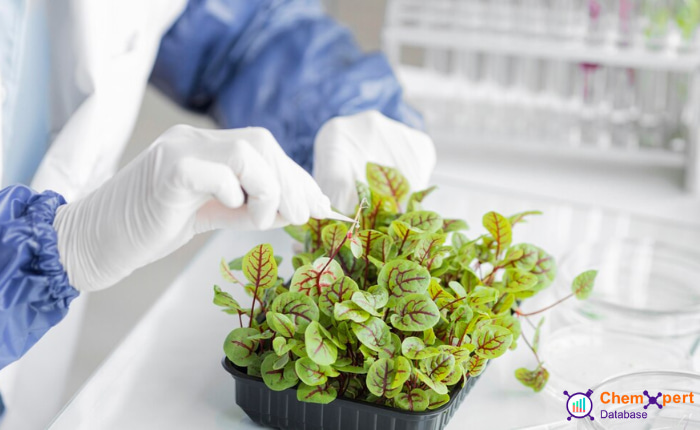
The agrochemical industry has been a cornerstone of modern agriculture, ensuring optimal crop production and protecting plants from pests, diseases, and environmental stress. As global demands for food increase, the industry faces the challenge of improving agricultural yields while addressing sustainability concerns. The interaction between global trends and local factors plays a critical role in shaping the strategies and operations of agrochemical companies. In this article, we will explore how global-local interactions influence the agrochemical sector, particularly focusing on databases that streamline operations and provide valuable insights for stakeholders.
The agrochemical industry is influenced by global dynamics such as climate change, technological advancements, regulatory policies, and international trade. These global forces shape how agrochemical companies innovate, market, and distribute their products. Below are key global trends affecting the industry:
Technological advancements in the agrochemical sector have been revolutionary. One of the most significant trends is the increasing reliance on agrochemical databases and other specialized information systems. These databases store a wealth of information, including crop protection solutions, pesticide formulations, and environmental impact assessments. The accessibility of this data has allowed companies to optimize production and improve their formulations, ensuring higher crop yields and better pest management.
As technologies like artificial intelligence and machine learning progress, agrochemical companies are leveraging biotech databases to analyze genetic data and develop biopesticides. This convergence of biotech databases with agrochemical practices has led to the creation of environmentally sustainable solutions that address the growing demand for organic and eco-friendly crop protection.
The global push toward sustainability is another driving force in the agrochemical industry. As climate change accelerates and the global population grows, there is increased pressure on agrochemical companies to develop sustainable, eco-friendly solutions. This has led to the rise of biotech databases, which are being used to develop bio-based products that are less harmful to the environment. These databases offer insights into plant and microorganism interactions, helping to create more targeted and effective bio-pesticides.
Incorporating sustainability into agrochemical practices involves adhering to stringent global environmental standards, and companies are now required to maintain transparent records of their product formulations and safety data. The use of a finished dosage database helps track the production and distribution of agrochemical products, ensuring compliance with these regulations and supporting environmental safety.

While global trends shape the broader industry, local factors significantly impact how agrochemical products are developed, marketed, and applied. These factors vary depending on the region's agricultural practices, environmental conditions, and regulatory frameworks.
Different regions have distinct agricultural practices and specific crop needs, which influence the type of agrochemical products used. For example, regions in Southeast Asia might require specialized crop protection products for rice paddies, while regions in Europe focus on pesticides for vineyards. Dyes databases have become essential in identifying and cataloging the various chemicals used in local agricultural practices, especially for crop treatments and food safety.
Local agrochemical companies rely on comprehensive chemical databases to tailor their offerings to regional agricultural needs. These databases track the chemical properties of products, offering valuable information on their effectiveness against local pests and diseases. By understanding these local nuances, agrochemical companies can provide solutions that are both effective and region-specific.
Regulatory frameworks vary significantly across regions, creating challenges for agrochemical companies seeking to operate globally. While there is a general trend towards stricter regulations worldwide, local governments enforce their own standards based on regional agricultural practices and environmental concerns. For instance, the regulatory approach in the European Union is different from that in the United States or India. Finished dosage databases help companies ensure that their products comply with local standards, offering a centralized system to manage formulations, dosages, and application methods based on region-specific regulations.
Furthermore, agrochemical companies must navigate local resistance to chemical-based solutions. In many regions, there is growing resistance to synthetic pesticides, and local farmers may seek alternative methods such as biopesticides or integrated pest management (IPM). The synergy between global biotech advancements and local preferences has pushed companies to focus on products that are both globally competitive and locally adaptable.
Another critical aspect of the global-local interaction is the supply chain and distribution network. Agrochemical companies must ensure that their products are available to local farmers and distributors while minimizing the costs of global logistics. Local distributors often work closely with agrochemical manufacturers to understand the needs of their target markets and provide feedback on product performance.
The use of agrochemical databases helps optimize inventory management, ensuring that companies can efficiently manage the supply of products to different regions. Local distributors rely on this data to anticipate demand, avoid stockouts, and ensure that the products they distribute meet local specifications.
Despite the numerous benefits of global-local interactions in the agrochemical industry, several challenges persist:
Despite these challenges, the opportunity to leverage chemical databases, agrochemical databases, and other digital tools to enhance global-local interactions is significant.
Global-local interactions in the agrochemical industry drive innovation and adaptability. By integrating global advancements with local needs, companies address diverse agricultural challenges, enhance productivity, and promote sustainability. This dynamic interplay fosters tailored solutions, enabling the industry to meet global food security demands while respecting local ecosystems and socio-economic contexts.

Sick and tired of always wondering if you are being asked to pay the right price for your APIs? This empowers you with the answers you need to make the right decisions in the Global API market.
Chemxpert Database is one of the biggest and most comprehensive directories of pharma and chemicals, manufacturers, suppliers and information. Provided with current information on prices, demand and transactions, it gives you instant feedback on whether you are buying what is right and at the right time.
Start using market intelligence today and allow yourself to be in control in the API market.
Check it out today and make more informed sourcing decisions! Learn More!